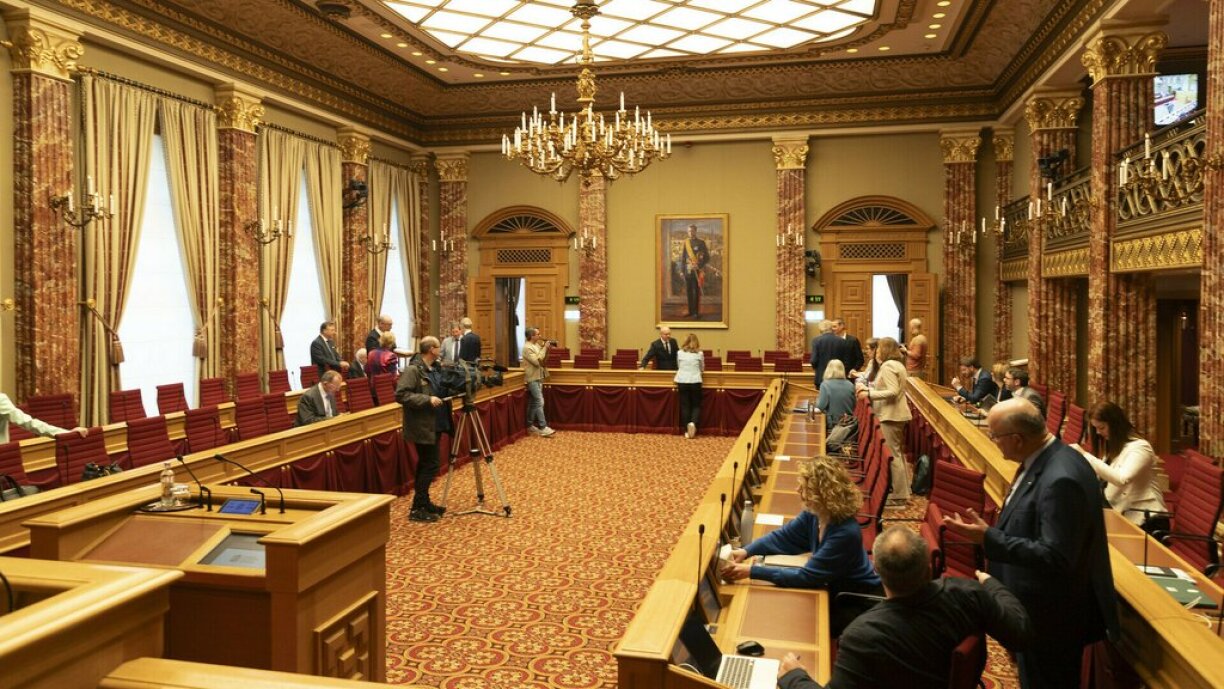
On Wednesday, the Chamber of Deputies launched a consultation debate on pension reform, with the two governing parties proposing measures to address the system’s financial challenges without increasing contributions or raising the legal retirement age.
The Christian Social People’s Party (CSV) and the Democratic Party (DP) emphasised the need to avoid burdening employers with higher contributions, citing concerns about Luxembourg’s competitiveness and attractiveness. Instead, they suggested extending the period workers must contribute beyond the current 40 years, which could delay the average actual retirement age – currently around 60 – while keeping the legal retirement age at 65.

MP Sven Clement of the Pirate Party described the issue as highly “sensitive”. CSV MP Alex Donnersbach stated, “An increase in contributions will not help in our situation. It is the last option,” while DP MP Gérard Schockmel stressed the importance of maintaining a balanced state budget and controlling spending. However, neither MP provided specific figures for the measures to be taken.
The CSV also opposed extending the reform to include civil service pensions, particularly for public sector employees hired before 1999, who are covered by a special transitional regime. While the citizens’ consultation had called for broader reforms, the focus now appears to be on adjustments to the private sector pension system.
The opposition, meanwhile, firmly rejected increasing the legal retirement age.
The DP and the CSV have pledged to maintain supplementary pension periods, including those for years of study and childcare, commonly referred to as “baby years.” However, questions remain about the structure of Luxembourg’s three-pillar pension system, which comprises the state pension (pillar 1) and supplementary private pensions (pillars 2 and 3).
The government has committed to preserving pillar 1 as the foundation of the pension system while exploring ways to enhance the role of private pensions. One proposal under consideration is to expand tax incentives for private pension contributions. However, private pensions pose a significant limitation: they are more accessible to higher-income workers, raising concerns about equity.
Both the DP and CSV have emphasised the need to build a “fair” and “sustainable” system, though neither party appears willing to address the issue of minimum pensions, which many consider too low. DP MP Gérard Schockmel argued that having a low pension does not automatically mean that people are struggling financially, as they could have other revenue streams, such as rents. Instead, the CSV and the DP suggest more targeted social assistance programmes.
The CSV has expressed determination to act on pension reform, vowing not to leave the issue unresolved for future governments.
The debate continued into Wednesday afternoon, with opposition parties presenting their perspectives. The Luxembourg Socialist Workers’ Party (LSAP) warned against any moves to “privatise” the pension system and called for increased revenue to ensure its sustainability.
The Alternative Democratic Reform Party (ADR) proposed delaying early retirement by one year and gradually raising contributions.
Meanwhile, MP Djuna Bernard of the Green Party (Déi Gréng) welcomed the discussion of both public and private systems and suggested creating a pension fund for the public sector, similar to the existing private sector fund.
MP Sven Clement of the Pirate Party highlighted the complexity of the issue, stating that the pension reform is “not an easy one.”
Finally, the Left Party (Déi Lénk) aligned itself with the position of trade unions, advocating for reforms that prioritise increasing revenue for the pension system. MP Marc Baum stated, “We are on the same line as the unions, with the emphasis on the revenue of the system via the abolition of the contribution cap and an increase in contributions to 9%.”
It is worth noting that both the DP and the LSAP also expressed support for the proposal to abolish the contribution cap, while ensuring it does not generate additional pension entitlements for high earners. Currently, contributions in the general pension scheme for the private sector are capped at five times the minimum wage.
During the debate, DP MP Patrick Goldschmidt questioned Marc Baum on whether pensions in the civil service should also be capped, given that the civil service currently has no contribution cap. Baum responded with a clear “yes,” arguing that even in the civil service, additional pension entitlements should not be generated above five times the minimum wage. He emphasised that this measure would not adversely affect the highest civil service career level (A1) even 25 years from now, based on the Left Party’s own calculations.
The Green Party opposes lifting the contribution cap without corresponding pension entitlements. Meanwhile, the CSV and the ADR have yet to take an official stance on the issue.